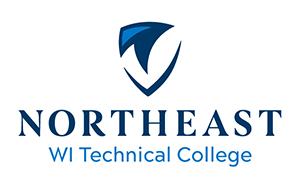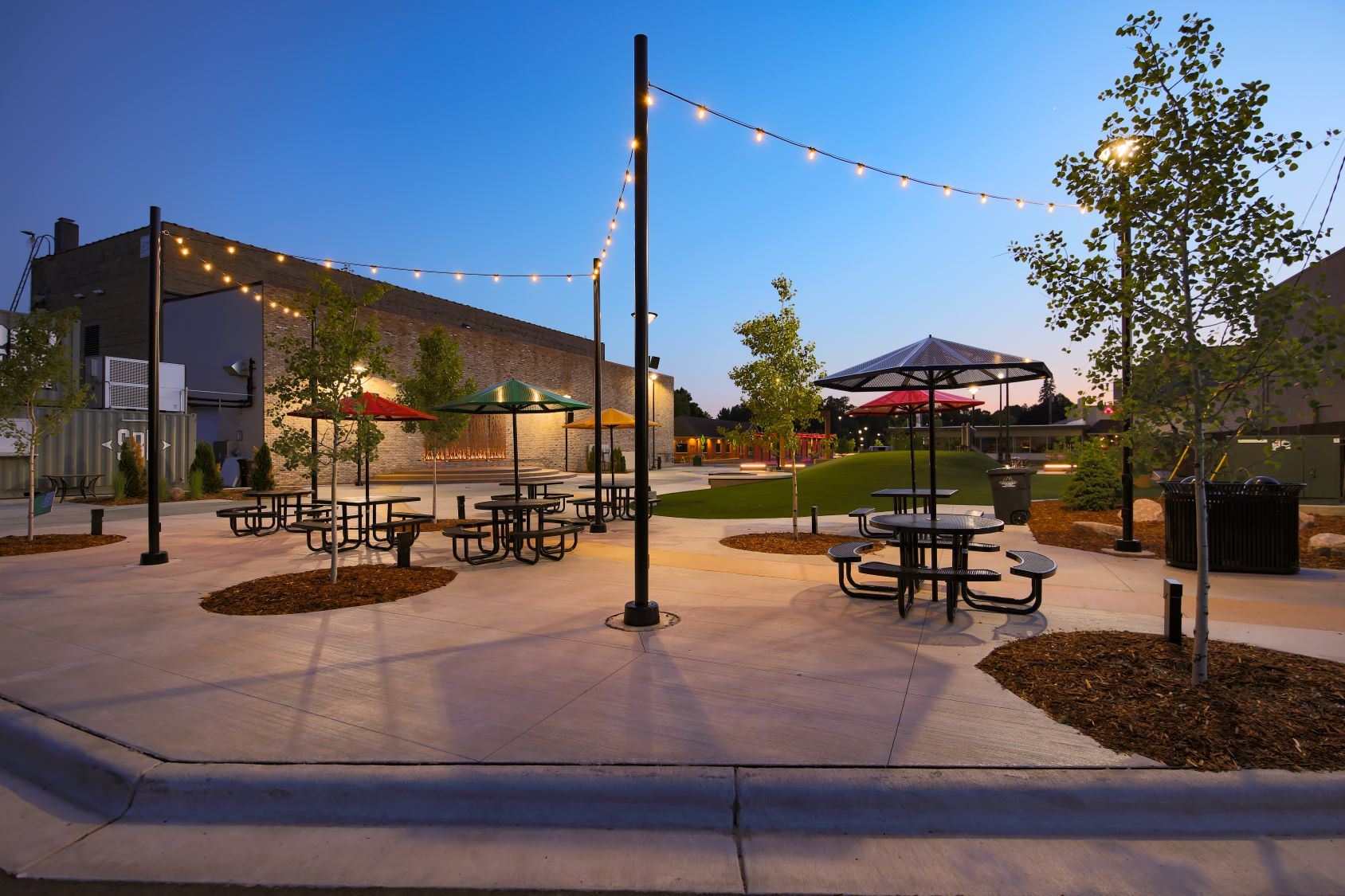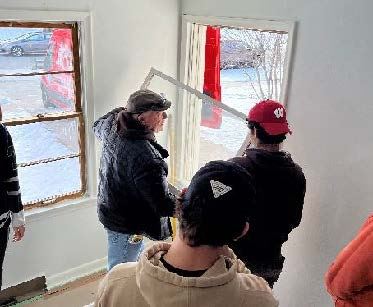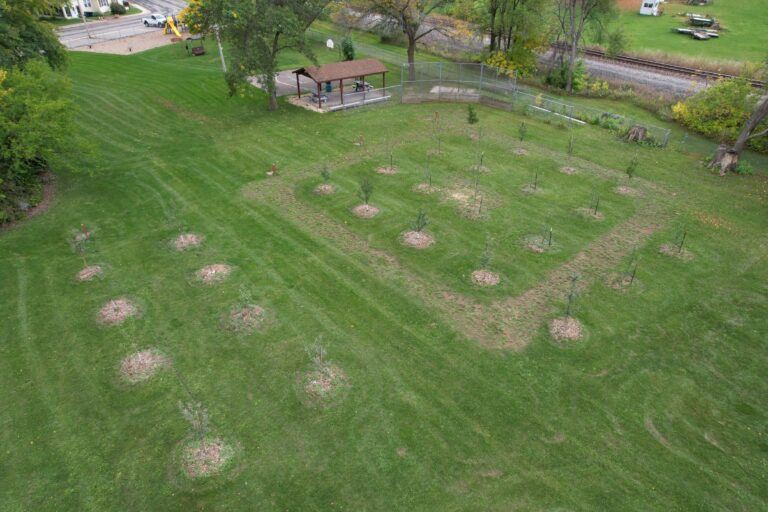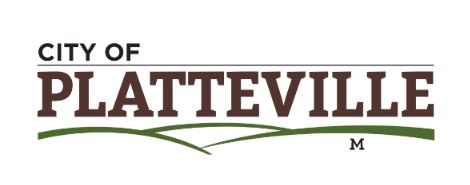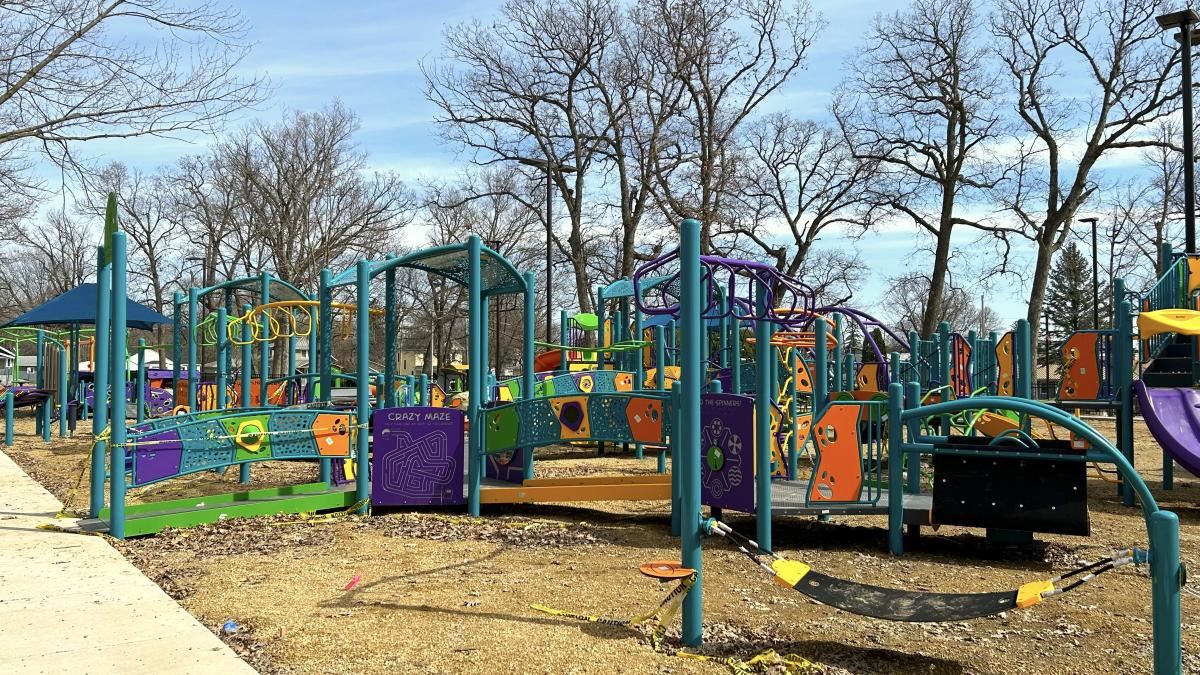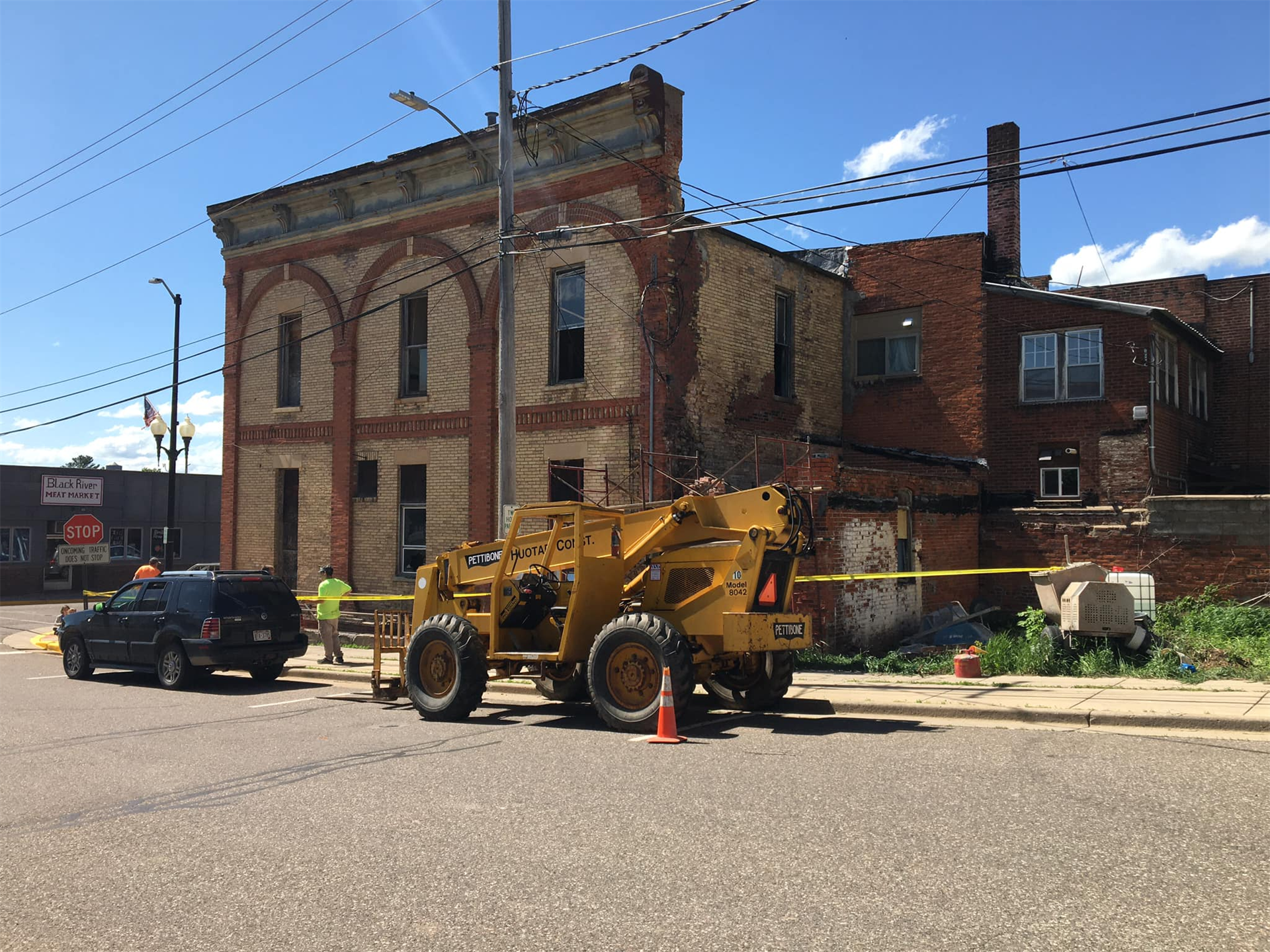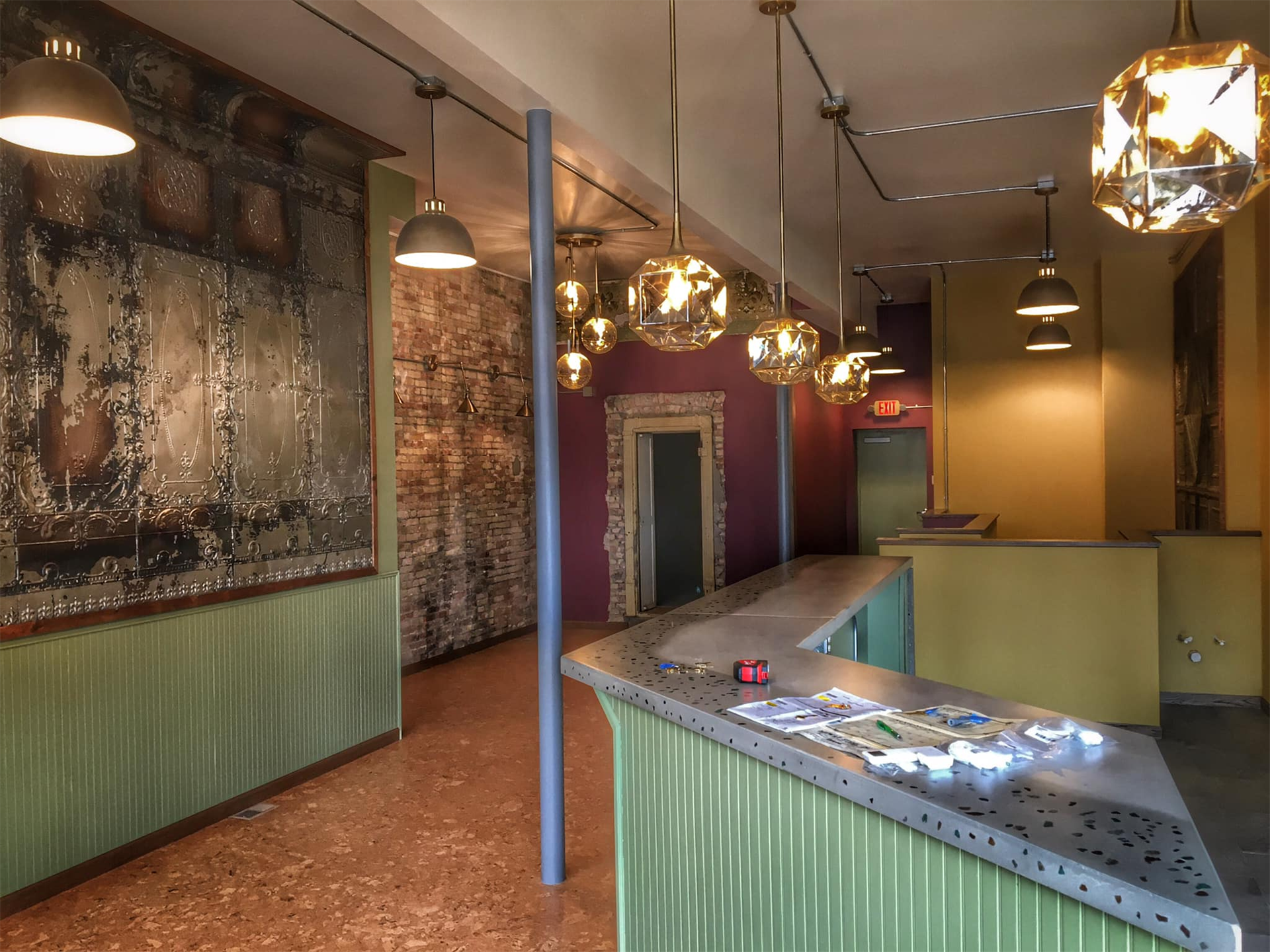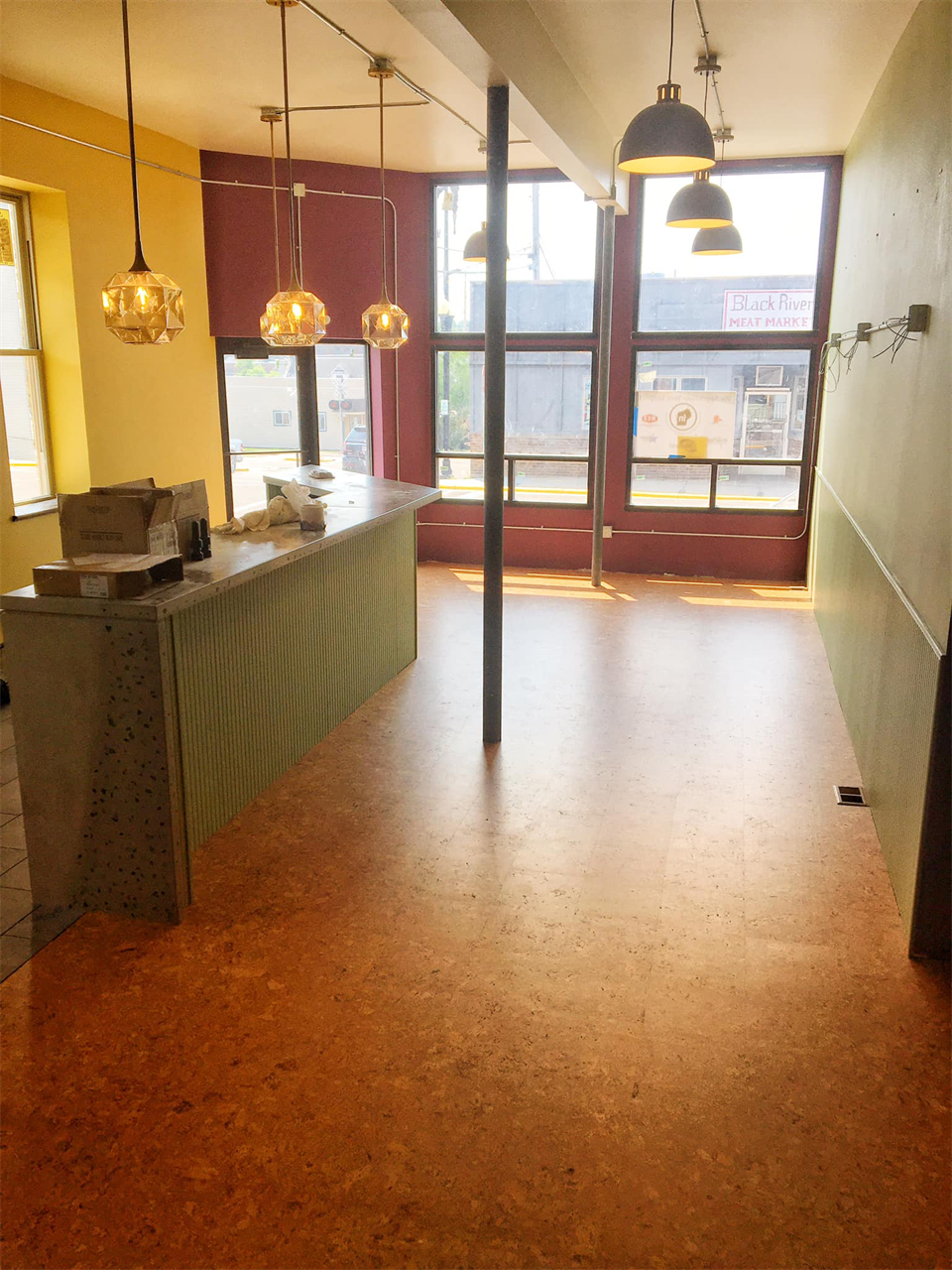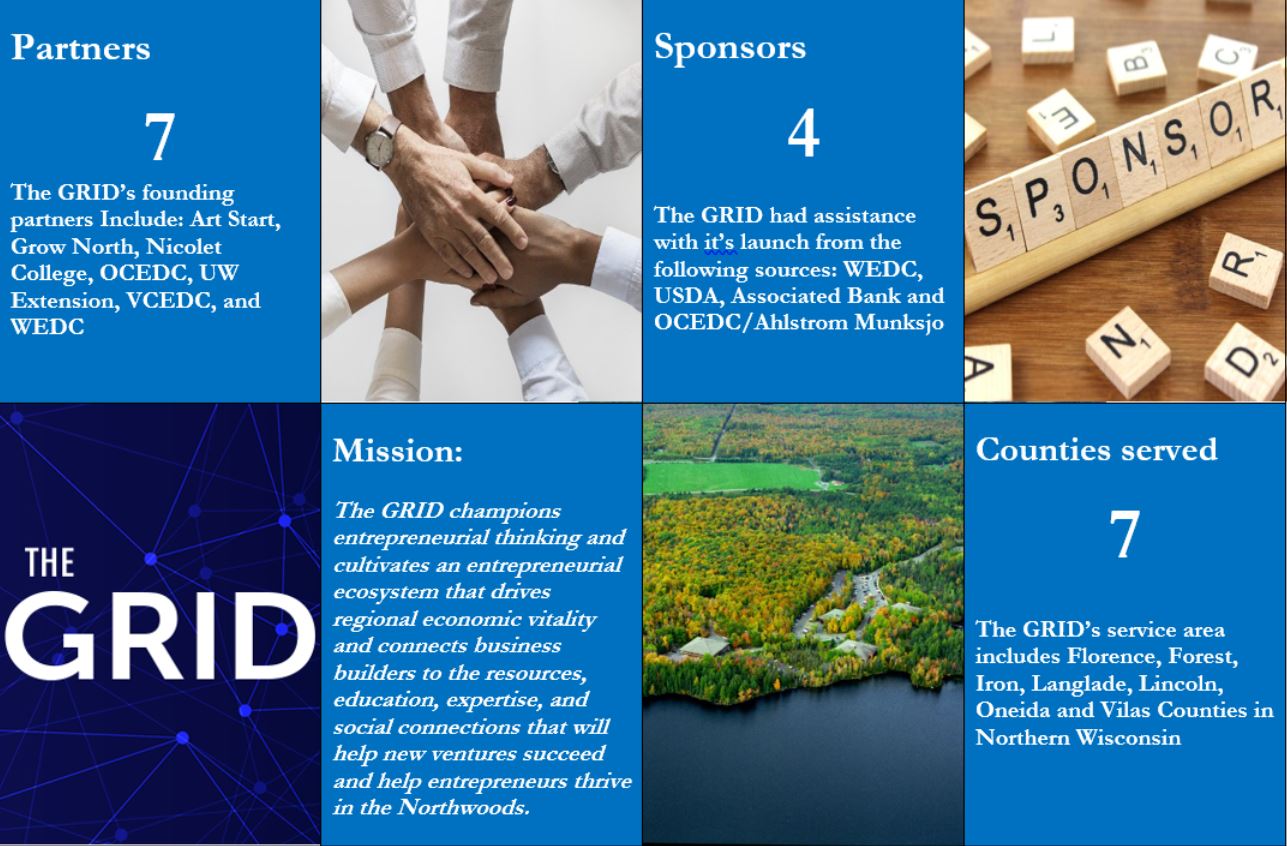2024 TOP RURAL DEVELOPMENT INITIATIVES Winner
Encompass Oconto Falls LocationThrough a joint initiative between OCEDC, Encompass, and Oconto County Public Health, they successfully secured a 13,400 square foot building situated on nearly 4 acres of land in the City of Oconto Falls. To ensure the project's success and longevity, it was crucial to minimize Encompass's overhead expenses. As a result of an RFP process and a unanimous decision by the Oconto County Board of Supervisors, a grant of $250,000 was conferred upon Encompass. The family who previously owned the building acknowledged the long-term impact this early education center would have on the county, generously reducing the building's selling price by an additional $250,000. This facility is projected to provide education and care for 140 children, marking a significant 67% increase in childcare capacity in Oconto County. Encompass stands as a distinctive provider of early childhood education services. With a history dating back to 1919, Encompass has mastered the art of offering a broad range of quality, affordable services. They are known for compensating their teachers fairly and adopting a comprehensive approach that caters to the needs of the entire family, not just the children. |
2024 TOP RURAL DEVELOPMENT INITIATIVES Nominees |
The Capital Access Clinic (CAC) is an economic development initiative created to address the challenge of obtaining access to financing faced by aspiring and existing small business owners. Through the CAC’s outreach efforts, |
| Cultivating Rural Entrepreneurship Lisa Taylor created the Cultivating Rural Entrepreneurship initiative to start with an informational session in each of the rural counties served by NWTC, and from there met with each participant individually to find out the best way to move their business or business plans forward. |
|
it was identified that entrepreneurs have a significant need for financial knowledge and expertise to better support their small businesses. Most small business owners lack the resources to effectively create and understand their own three-year financial projections, which is crucial to accessing capital as well as strategic planning for business operations. | While small businesses are important to any community, they are especially relevant in rural areas of our state and need to be cultivated in those areas. She has provided technical assistance to each participant along with follow-up meetings to keep moving their business plans forward. She also provided connections to the different resources available in their area that could also help grow or launch their businesses. |
| A Plaza Working Group (WG) comprised of nine community members was quickly established to guide the concepts incorporated into the Plaza Project and provide a sounding board for design elements. The Working Group had five meetings between February 25 and May 18, 2021. | 
| ECWRPC Technical Assistance Program Three years ago, the East Central Wisconsin Regional Planning Commission launched a program using Covid related Economic Development Administration grant funds to establish technical assistance workshops for small communities in the RPC area. |
These meetings included many great conversations about the vision for the space, what the priorities should be, what types of elements should be incorporated, branding and aesthetic themes for the space, etc. The WG and City staff were very passionate about Shawano and the downtown redevelopment, which resulted in a very robust final plaza concept. The Menominee Tribe was also part of the plaza planning process offering up many ideas about how to incorporate Menominee culture into the finished space. | These workshops were originally designed to help communities rebound from Covid impacts. The program was so successful that it has been offered for an additional two years. The program involves a competitive process to have design professionals come to a community for a one day workshop focused on project of concern to the community. The result is the building of community buy in and the production of initial drawings or other documents to get a project going. |
Green County Development Corporation's Home Construction Cooperative Throughout Wisconsin, and especially in rural areas, the declining workforce and affordable housing supply are often-discussed problems. What began as a vision to tackle both problems in Green County with grass roots efforts exploded into reality with the creation of the Home Construction Cooperative, a collaborative partnership program of Green County Development Association (GCDC). The Home Construction Cooperative addresses the shortage of affordable, quality housing and the shortage of a skilled trades workforce by teaching students in-demand career skills with rehabbing and/or building affordable homes for the community. | 
| Wisconsin Farmers Union values and promotes economic cooperation among farmers, businesses, and organizations. This philosophy is embodied in Market on River, a 45,000 square foot building development project on River Street in Chippewa Falls. In 2022, Wisconsin Farmers Union bought the building to give opportunity to its members, house a new state headquarters, and to invest in a local food system that delivers more profit for small farmers and businesses. It features a farm to table, modern food hall in the lower level, educational and event space on the second floor, and apartments on the third floor. The business model synthesizes consumer trends, economic cooperation, rural investment, community- based food systems, and sustainability. |
|
| City of Mauston, nestled in rural Juneau County, Wisconsin, faced unique challenges, including high poverty levels and limited access to fresh food in a region classified as a food desert. The Community Sharing Pantry played a pivotal role in addressing local hunger, but the city sought innovative ways to make a positive impact on its community. Marachowsky's Park, a once-underutilized 2-acre space on the city's west side, stood on the brink of obsolescence. Youth baseball had moved elsewhere due to unfavorable conditions, and the removal of aging play structures and the closure of public restrooms further diminished its appeal. The city needed a fresh, community-focused solution. With determination and resourcefulness, Wilke secured a grant from Alliant Energy to offset tree costs and reallocated budget funds for irrigation equipment. |
| Platteville Inclusive Playground The Platteville Inclusive Playground is a 175’ by 125’ (21,875 sq. ft.) space that welcomes participation and supports inclusion of all, regardless of ability, gender, race, age, sexual orientation, or economic status. It has significantly improved accessibility at Smith Park in Platteville, Wisconsin. The main goal of the project was to provide a place for all children, including those with mobility constraints, sensory and cognitive issues, and visual or hearing impairments to play with their peers and parents/grandparents/family members. The playground includes a poured-in-place play area surface, play features for children from toddler age to teenagers and a surrounding fence for added safety. There is a walking path within the playground as well as benches and a shaded picnic area. Lighting provides an opportunity for evening play. Cameras are installed for added safety. |
Prickly Pear The re-birth of the building the Prickly Pear resides in includes all the elements of a great story. A condemned building, a tree rooted in the basement with its limbs reaching into the second floor. Fire at one time threatened to end it all, leaving behind the scars on the walls and holes in the floor. It tells the story of a one-time bank, the vault most recently holding vintage canned goods in mason jars rather than money. A once upon a time laundry in its most recent life still 40 years in its past. It would have been easy to overlook any future the building may have as it seemed like a daunting task to tackle all the issues visible to the eye. Not even touching on the ones that could not be seen. But it took two men with a dream and the ability to see the beauty still in the building, looking past the tree, pigeons, and broken bits.Jon and Doug Gasek had the vision, but they needed to find a funding source and a contractor to move forward. They applied for a Community Development Investment Grant from the Wisconsin Economic Development Corporation and received it. Funding was in place; next step was to partner with a contractor that wasn’t scared to tackle such a huge project. Huotari Construction saw the vision that Doug and Jon had for the building. It was a collection of putting puzzle pieces together to recreate walls, floors, and replacing missing bricks. All together, they saved the cornerstone of Medford’s Main Street |
| The GRID At the heart of The GRID is the fact that we are assisting in the creation of connections that we know will spur additional relationships. Our network of consisted of partners from the entire Northwoods of Wisconsin, but specifically, our Seven 'Spokes were composed of : Langlade County Economic Development, Oneida County Economic Development, Florence County Economic Development, Vilas County Economic Development, Lac Du Flambeau Business Development Center, Great Lakes Inter Tribal Council, and Grow North Regional Economic Development (which included Lincoln County, Forest County, and additional geographic regions not covered by this list); while the Hub of the operation was centered around Nicolet College which is located in Rhinelander, Wisconsin. Amongst these partners; we identified over 1,500 unique small businesses in our region (and growing), and we helped to connect these partners with any number of resources; from finance, to educational classes about business planning, to training about Artificial Intelligence, to one-on-one personalized marketing consultations. The list goes on, but more important that the list going on is the fact that we have established relationships with these community partners, and those relationships will be moving on long after The GRID. |
|
| Washburn AED Project The Washburn AED Project, initiated in 2021, is a collaborative effort between the Washburn Area Chamber of Commerce and Washburn Emergency Services aimed at enhancing community safety through the provision of Automated External Defibrillators (AED). It addresses a critical need faced by many rural communities by providing essential emergency response resources and training to local businesses. | Washburn County Wellness Center 50+ With the reopening of the senior centers post-COVID, Spooner seniors requested to not re-enter their old site. After extensive review, I agreed that it was no longer ADA compliant and we had outgrown the space Advocacy training was provided to the residents and I agreed to grant write. After a $100,000 award from Next50, the County Board agreed to allow our agency to acquire an abandoned county office space to be remodeled into our newly rebranded Wellness Center 50+. |
Recognizing the challenges faced by rural areas in accessing timely emergency services, particularly during life-threatening situations such as cardiac arrests, the project aims to bridge the gap in response time and potentially save lives. This is especially important since Washburn’s population as well as many of the tourists that visit is typically older and need access to emergency services more regularly. It all began with a business owner's inquiry about funding for an AED unit, sparking the realization within the Washburn Area Chamber of Commerce of the vital role AEDs play in emergency preparedness. Teaming up with Washburn Emergency Services, we embarked on a mission to secure funding for AED units and a training program for businesses in the Washburn area. Through proactive outreach to local businesses, the project identified and engaged establishments interested in hosting AED units and participating in training sessions. | After much advocacy and numerous meetings, the county approved to put forward over $600,000 to complete the project for a state of the art senior center, which was rebranded Washburn County Wellness Center 50+. |


